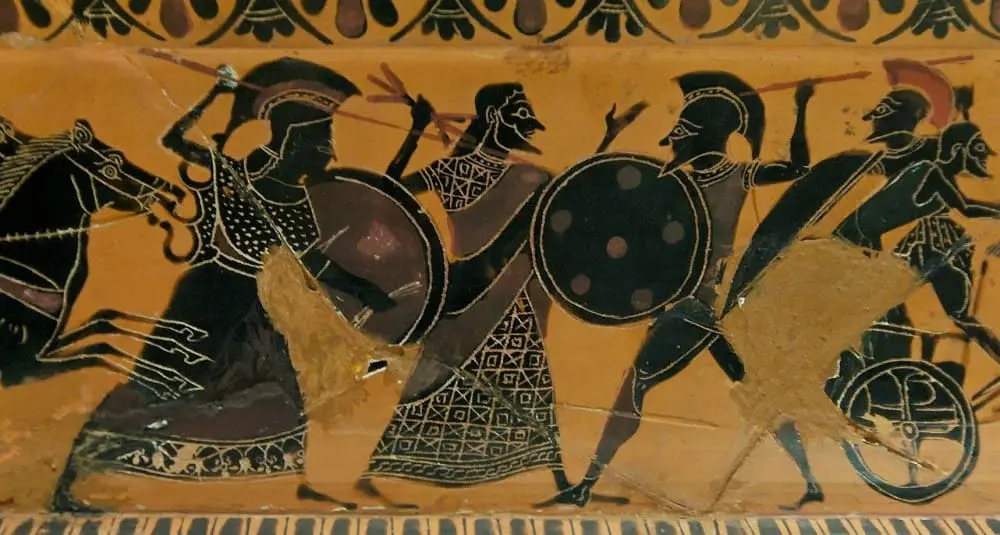In Greek mythology, who is the god of war?
Last Updated:
In Greek mythology, Ares is the god of war, representing the most violent and chaotic aspect of combat. Unlike Athena, who symbolizes strategy and military wisdom, Ares embodies warrior fury, brutality and carnage. He is often described as a fearsome, ruthless and impulsive god, more feared than admired, even by the other gods of Olympus.
The son of Zeus and Hera, Ares does not enjoy the same respect as the other deities of Olympus. His own father, Zeus, makes this clear in the Iliad, where he claims to despise his son for his aggressive temper and taste for indiscriminate violence. He is often perceived as an uncontrollable force, in contrast to the wisdom and discipline of Athena, who is often pitted against him on the battlefield.
Despite his central role in warfare, Ares is rarely a hero in mythological accounts. He is often portrayed as an impulsive god, easily manipulated and even ridiculous in certain situations.
In Homer’s Iliad, Ares plays an active role in the Trojan War, fighting alongside the Trojans. But his arrogance and lack of strategy cost him dearly. When he confronts Diomedes, a Greek hero aided by Athena, he is seriously wounded and flees, complaining to the gods. This episode illustrates his impetuous and rash character, unlike other warrior gods like Athena, who demonstrate cunning and intelligence.
Despite this, Ares remains a powerful god, often accompanied by his children and deities associated with war, notably Phobos (fear) and Deimos (terror), who frighten combatants on the battlefield, as well as Enyo, goddess of destruction.
One of the most famous myths concerning Ares is his affair with Aphrodite, the goddess of love and beauty. Although married to Hephaestus, the blacksmith god, Aphrodite had a passionate relationship with Ares. From this romance several children were born, including Eros (god of love), Harmonie (symbol of union and peace) and the twins Phobos and Deimos.
However, their affair was discovered and ridiculed. Hephaestus, jealous and cunning, captures the lovers by trapping them in an invisible net, which he exposes to the other gods of Olympus, provoking their mockery. This episode illustrates once again Ares’ impulsive and thoughtless character, acting on his desires without anticipating the consequences.
Unlike other gods, Ares didn’t enjoy much of a cult following in Greece. He was respected but rarely worshipped, his role often considered necessary but dangerous. However, some cities, such as Thebes and Sparta, did devote a special cult to him, seeing him as a protector on the battlefield.
In Roman mythology, Ares is equated with Mars, who, unlike his Greek counterpart, is much more respected and appreciated. Mars represents disciplined warfare and Roman strength, while Ares embodies more chaotic and destructive warfare.
Ares, the god of war in Greek mythology, embodies the raw violence and destruction of battle. Unlike Athena, who represents strategy and cunning, he is often portrayed as impulsive and unpredictable. Although he plays a key role in many myths, he is rarely glorified and remains a deity more feared than admired, even among the Olympian gods.
You may also be interested in
history

In Greek mythology, who is the god of war?
Answer
In Greek mythology, Ares is the god of war, embodying the brutality and destruction of battle. Son of Zeus and Hera, he is feared even by the gods.